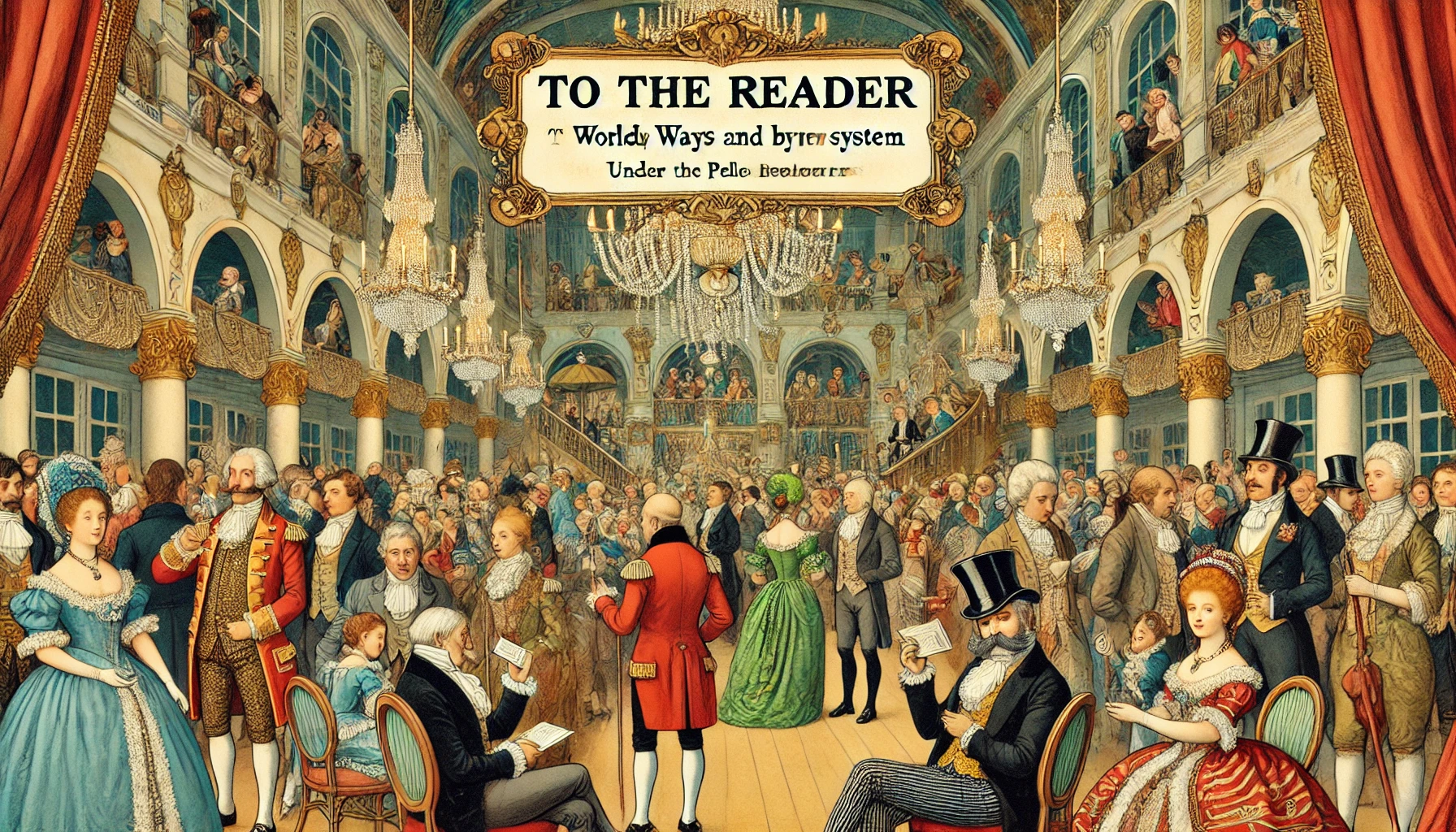To the Reader
byTo the Reader, in Chapter 2 of “Worldly Ways and Byways,” the author reflects on a past diplomatic custom known as the Pele Mele, a practice meant to resolve the constant disputes over precedence among courtiers and diplomats. This system, likely conceived by an overburdened Master of Ceremonies, sought to nullify rank and eliminate the usual formalities of social gatherings, creating an environment where one’s position at an event was determined by wit or chance rather than status. The Pele Mele resulted in an unpredictable mix of competition and intrigue, where individuals vied for prominence, and the usual social order was replaced by a more chaotic, fluid structure. The practice highlights how human interactions, particularly in diplomatic and courtly settings, have historically been governed not just by clear-cut rules but by subtle games of strategy and luck, with each individual jockeying for position in a world of shifting power dynamics.
The chapter makes an intriguing comparison between the outdated and chaotic practices of Pele Mele and the structures of modern society. In both contexts, success is not solely determined by merit or inherent worth but by one’s ability to navigate social intricacies and maintain advantageous positions within a competitive environment. The author critiques the contemporary world, where social and professional success is measured by one’s ability to adapt to these complexities, constantly proving one’s worth in the eyes of others. Just as the Pele Mele created a competitive, ever-shifting dynamic, today’s society similarly rewards individuals who can maneuver through the complexities of social expectations, positioning themselves to gain recognition and success. The drive for status and recognition intensifies, yet it is fragile, with any failure leading to swift obscurity, leaving once-celebrated individuals bypassed by the same people who once admired them.
This constant cycle of competition and the pursuit of social positioning, likened to the ongoing dynamics of Pele Mele, is explored as a reflection of the modern world. The text offers a critical view of this relentless race for accomplishment, noting that while those who succeed in this societal framework enjoy adulation, their victories are often hollow and short-lived. The pressures of maintaining one’s status in a world that constantly demands proof of worth can lead to an exhausting pursuit of approval and recognition. These superficial measures of success, the author suggests, contribute to a culture where individuals are judged primarily by their ability to conform to societal expectations and to continually demonstrate their worth, rather than by their true talents, contributions, or inner qualities. This social game, driven by outward appearances and fleeting achievements, becomes a tiring cycle that rewards conformity and external validation rather than genuine personal fulfillment.
In a philosophical shift, the author advocates for a more introspective approach to life, encouraging the reader to seek contentment within themselves rather than from the judgment of society. The narrative proposes that true happiness is found not in the external validation of others but in a serene detachment from the competitive forces of the social world. This detachment, the author argues, is the antidote to the pressures of constant social maneuvering and the need for approval. By focusing on self-assurance and inner peace, individuals can free themselves from the capricious nature of societal judgments, which are often based on transient trends and external factors. The message is clear: personal happiness and fulfillment are not dependent on external recognition or societal rewards but can be cultivated through internal peace, self-reflection, and a steady detachment from the constant need to prove one’s worth.
This shift in focus from external validation to internal contentment reflects a broader societal critique about the pressures placed on individuals to constantly perform for the approval of others. In a world increasingly driven by social media and public perception, studies in psychology have shown that the pursuit of constant external validation can lead to stress, anxiety, and feelings of inadequacy. By emphasizing the importance of self-validation, the chapter encourages readers to reflect on their own relationship with societal expectations and to prioritize inner contentment over external accolades. In today’s world, where social comparison is more prevalent than ever, this advice offers a timely and valuable reminder that true success and happiness come from within, rather than from the fleeting judgments of others.


